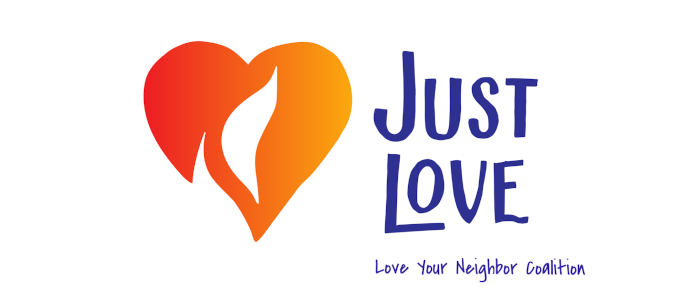MFSA Plumbline - Accessibility and Inclusion of People With Disabilities
Understanding the Issue
Persons with disabilities and those who are d/Deaf and hard-of-hearing lack the institutional and structural supports within The United Methodist Church (UMC) to accomplish the UMC’s stated goal of full inclusion. Steps need to be taken to change that reality.
“We recognize and affirm the full humanity and personhood of all persons with mental, physical, developmental, neurological, and psychological conditions or disabilities as full members of the family of God. We also affirm their rightful place in both the Church and society” (¶162.I)
“We urge the Church and society to recognize and receive the gifts of persons with disabilities to enable them to be full participants in the community of faith” (¶162.I)
Those beautiful words have yet to be embodied in the life of The United Methodist Church. We are called as followers of Christ to live out an incarnated faith. We ask the General Conference delegates to support legislation that would take important steps in putting flesh on the dry bones of the beautiful words in our Social Principles.
Values
Empowering the church
Making space for God’s calls in people’s lives
Accessibility
Accommodation
Awareness
End discrimination
Acknowledge the diversity within God’s beloveds
Seeking justice
Building connections
Analysis
Full inclusion is a worthy goal but right now there are few supports for clergy with disabilities as they seek ordination and just appointments, and for laity as they attempt to live out God’s call in positions within United Methodist Conferences and Boards and Agencies.
The United Methodist Church has never made a true, embodied commitment to live by the standards set by the Americans with Disabilities Act (ADA) of 1990 and/or the standards set by the United Nations (UN) Convention on the Rights of Persons with Disabilities. The UMC must take this necessary step if we hope to to include and empower individuals with disabilities and those who are d/Deaf and hard-of-hearing. However, policies and procedures that limit or disempower individuals based on misplaced fear or outright bigotry are often lived out at all levels of the UMC
For example, The United Methodist Church choosing to not abide by ADA or UN Convention Standards means that conferences have no standards or guidance when candidates for ministry request accommodations. This has led to gifted and graced individuals being denied the opportunity to live out their call in The United Methodist Church.
If The United Methodist Church wants to live up to its statements in the Social Principles then it must take steps to address ableism and audism at every level of this denomination. We are not truly the Body of Christ until we support and empower all those whom Christ has called.
Recommended Action
To become the Body of Christ, the UMC must work to dismantle the barriers that have kept individuals with disabilities and those who are d/Deaf and hard-of-hearing from fully living out the call on their lives. Too often the Church has marginalized them, seeing them solely as recipients of charity. We call upon General Conference to begin the work of dismantling these physical and attitudinal barriers by passing the legislation listed below:
Vote FOR Petition Number: 20568-IC-R3001-G, p. 892 “Accessibility Grants to Churches” calls upon the UMC to set aside funds to provide accessibility and program grants for churches in all annual conferences including in central conferences. Funding is necessary to deal with the physical and programmatic barriers that often deny many individuals the opportunity to participate fully in the life of the Church. The UMC should set aside funds for this specific purpose.
Vote FOR Petition Number: 20583-IC-R9999-G, p. 900 “Recognition of the Disability Ministries Committee of the United Methodist Church” requests that The United Methodist Church acknowledge and empower the DisAbility Ministries Committee of The United Methodist Church (DMCUMC) with defined responsibilities and task. It also requests that the DMCUMC be officially placed under the auspices of the General Commission on Religion and Race.
Vote FOR Petition Number: 20584-IC-R9999-G, p. 901 “Disabilities and the Ordination Process” calls for the General Conference to urge leaders at all levels of the ordination process to allow reasonable accommodations for individuals navigating the ordination process.
Vote FOR Petition Number: 20585-IC-R9999-G, p. 901 “Mental Health Discrimination in Disability Compensation” calls upon the General Board of Church and Society to advocate globally to ensure that when disability insurance is offered it is offered without discrimination against mental and nervous conditions.
Vote FOR Petition Number: 20586-IC-R9999-G, p. 902 “The Church and Disability” asks the UMC to pledge to true accessibility, building awareness, developing adequate resources, and embracing affirmative action in order to support and empower individuals with disabilities and those who are d/Deaf and hard-of-hearing within the life of the Church. The UMC must also commit to advocating for these individuals in society-at-large.
This document was prepared in collaboration with the United Methodist Association of Ministers with Disabilities (UMAMD). MFSA and UMAMD are members of the Love Your Neighbor Coalition. Learn more www.lyncoaltion.org.
MFSA Plumbline: Accessibility and Inclusion of People with Disabilities www.mfsaweb.org.
© 2024, Methodist Federation for Social Action
